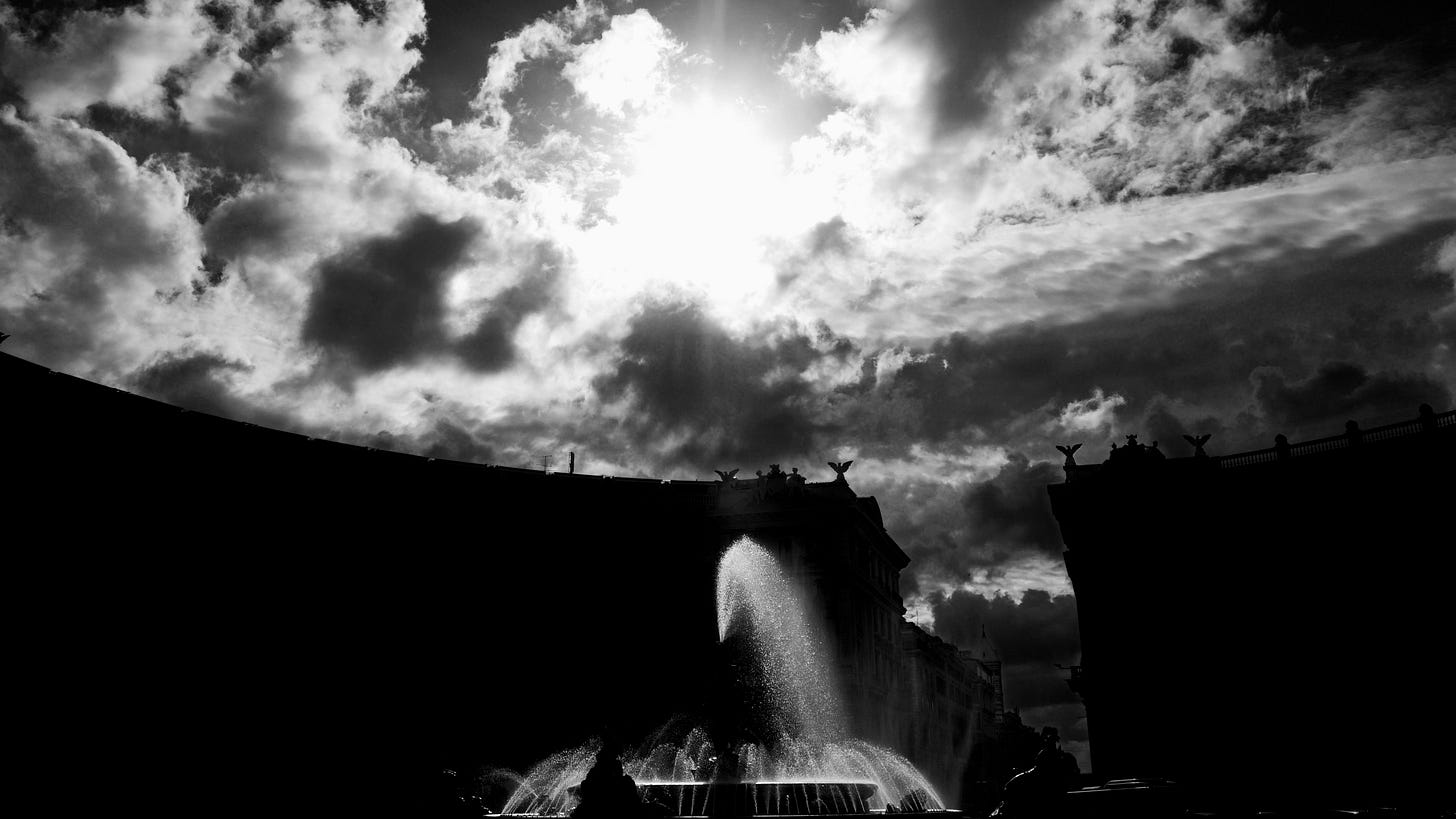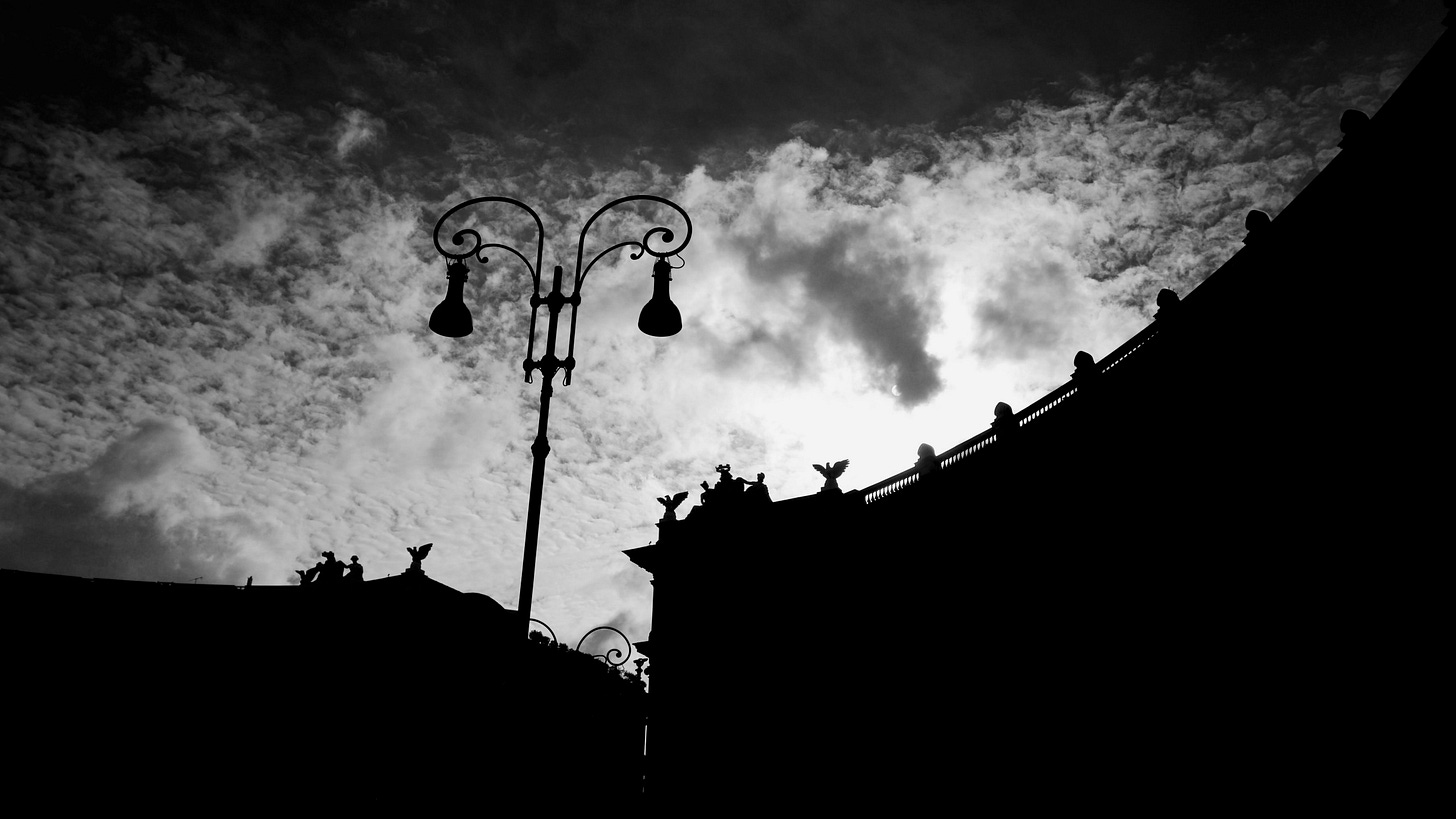To say that truth is stranger than fiction is to say that you don’t read much fiction. It is to spot coincidence or peculiarity or crisis in the world and declare it unbelievable, unprecedented, unimaginable, even though fiction, almost certainly, got there first. Even the largest of conspiracies can be a little humdrum for many storytellers: what’s unbelievable in life is forgettable in novels. And the belief that reality is stranger than fiction also gives rise to another fatuous phrase—you couldn’t even write that—which at least has the virtue of being true for anybody who speaks those words.
By the same principle nobody who says that a photograph is worth a thousand words has ever tried to string together a thousand meaningful, intriguing, and evocative words. There’s nothing particularly wrong with this cliché—except that it collapses after just the smallest of shoves. Photographs can of course be poignant, nuanced, captivating, vivid, breathtaking, informative, persuasive, and I’m certainly drawn toward good photography, but a photograph stimulates you in a different way than a thousand words. This isn’t to denigrate the potency of photographs, the appeal of photographs, or even the necessity of photographs, but to make this comparison is to slide into exaggeration without forethought. A complex story involves ambiguity and reversals and contradictions, and, for a tale with those ingredients, you’ll need to play with words, unless the response to incredible photographs is left to grunts, yelps, and squeals.
What’s paradoxical about these three statements, in fact, is that they arise from a literal mind, from an empirical perspective of facts and evidence and observations, but they then attempt to describe a fictional world. In many ways these clichés offer salvation for failed predictions about reality. When you’re confronted by a surprise, or with the baffling nature of life, it might help to announce that the situation was unimaginable: truth is stranger than fiction, you couldn’t even write that, a photograph is worth a thousand words. If you failed to predict what happened, then nobody else could have either—and certainly not some pesky fiction writer. For those who don’t read fiction and for those who lack imagination and for those who fail to predict reality, these are simple clichés that offer redemption.
Yes this is a visual age and we’re awash in photos and videos that capture the spirit and give vibrance to our time, but that’s precisely why each photograph matters less: we’ve increased the supply and consequently decreased the value. Even though our collective eyeballs are dried and unblinking and bloodshot and begging for rest from our screens, most people are surprised to discover that the power of photographs has decreased in our contemporary world. A photograph isn’t worth a thousand words partly because we scroll past the infinite cascade of photographs with indifference. And it is precisely because contemporary life comes with this torrent of photographs—in the stream of personal messages, in the infinite scroll of news—that the power of any single picture has diminished.
I can’t be shocked by photographs, nor can you, because we’ve already scrolled past but not even clicked on countless photographs today that would be unbelievable just a few years ago—here’s a photo of a naked man juggling clothed dogs, here’s an old turtle that’s unhappy with his office job, here are two different photos of cats that use ChatGPT to help catch birds—it is all just humdrum at this point, we’re overwhelmed, desensitized, unimpressed, and the age of images is also the age when images don’t count.
Of course spending all day staring at photographs does have its effects, especially when you start to consider all the fictional representations that we do end up consuming: if you are reading this sentence, then you’ve probably watched more fictional representations of dramatic emotion in your life than you’ve witnessed actual acts of dramatic emotion. Believing that you couldn’t even write that quickly becomes more difficult when you consider this possibility. Try to imagine all the actors that you’ve watched over the years—the countless hours of movies that you’ve seen with laughing, crying, screaming, terror, excitement, yelling—and notice that this is the first age, in all of history, where fictional representation of dramatic emotion is more ubiquitous than real acts of dramatic emotion. And that means that the majority of people that you’ve seen cry were, most likely, just pretending.
Fiction is where I start digging trenches—promoting the superiority and importance of fiction is one fight that will never tire me. But it is a battle that’s, sadly, always fought against the odds, with more combatants on the stranger than fiction side, with more believers in truth that couldn’t be written, with more people who overlook the capaciousness of a thousand words, than those who understand the power of narrative. This is, of course, the timeless struggle between the literal and ironic mind. In narrative, we have ambiguity, vibrance, atmosphere, sensibility, contradiction, paradox, wonder—the elements of life that are most meaningful yet utterly absent from the literal mind.
It is useful to remember that fiction can’t be distilled, it can’t be deconstructed into a clean message, and that’s where it gets its power. To believe otherwise is to believe that Moby-Dick is about whaling, that Crime and Punishment is about a murder, that Elena Ferrante’s Neapolitan series is about Naples. Fiction has power because the surface isn’t sufficient and it can’t be reduced. And the photographs that interest me most are similar—they start to encroach upon the ironic mind with complexity and intrigue and the unknown. There’s ambiguity, perhaps a story, a mysteriousness that might even feel fictional.
You might be curious to know that when you reach the very last word in this sentence you’ll have read exactly one thousand words, which doesn’t mean that you’ll agree with a single point, or that this essay is particularly cogent or engaging or even worth your time, but it does mean that you’ll have a hard time illustrating the paragraphs above with a single photograph.







“... fictional representation of dramatic emotion is more ubiquitous than real acts of dramatic emotion. And that means that the majority of people that you’ve seen cry were, most likely, just pretending.” You always bring up such provocative points, Charles. I admit I do not fully understand them all – some of your essays are like attending a course for which I have not taken the pre-requisites. But I am always left with unanswered questions to ponder, such as: How many people today prefer to spend more time in fictional, fake worlds, whether visual or written, than deal with the real world? Can anyone even tell the difference anymore? Has the real world become so frightful? Is it just too hard to manage the brain-boggling “pretend reality” that has built up all around us? So much of the “writing” I find on line is, to me, no different than your “... photo of a naked man juggling clothed dogs.” Sometimes I am ashamed of myself for the crap fiction I let into my head. Thank you.
I think people understand that broadly speaking there’s often a lot of truth in cliches...but of course they don’t tell the whole story. I’ve moved further and further away from binaries and superlatives of late. Humanity exists in the complex gray.
I agree about writing 1,000 words vs a photo. Language has shifted so dramatically in just the past 3-5 years, and not organically, but rather via political ideological force. Words no longer mean what they used to.
Michael Mohr
‘Sincere American Writing’
https://michaelmohr.substack.com/